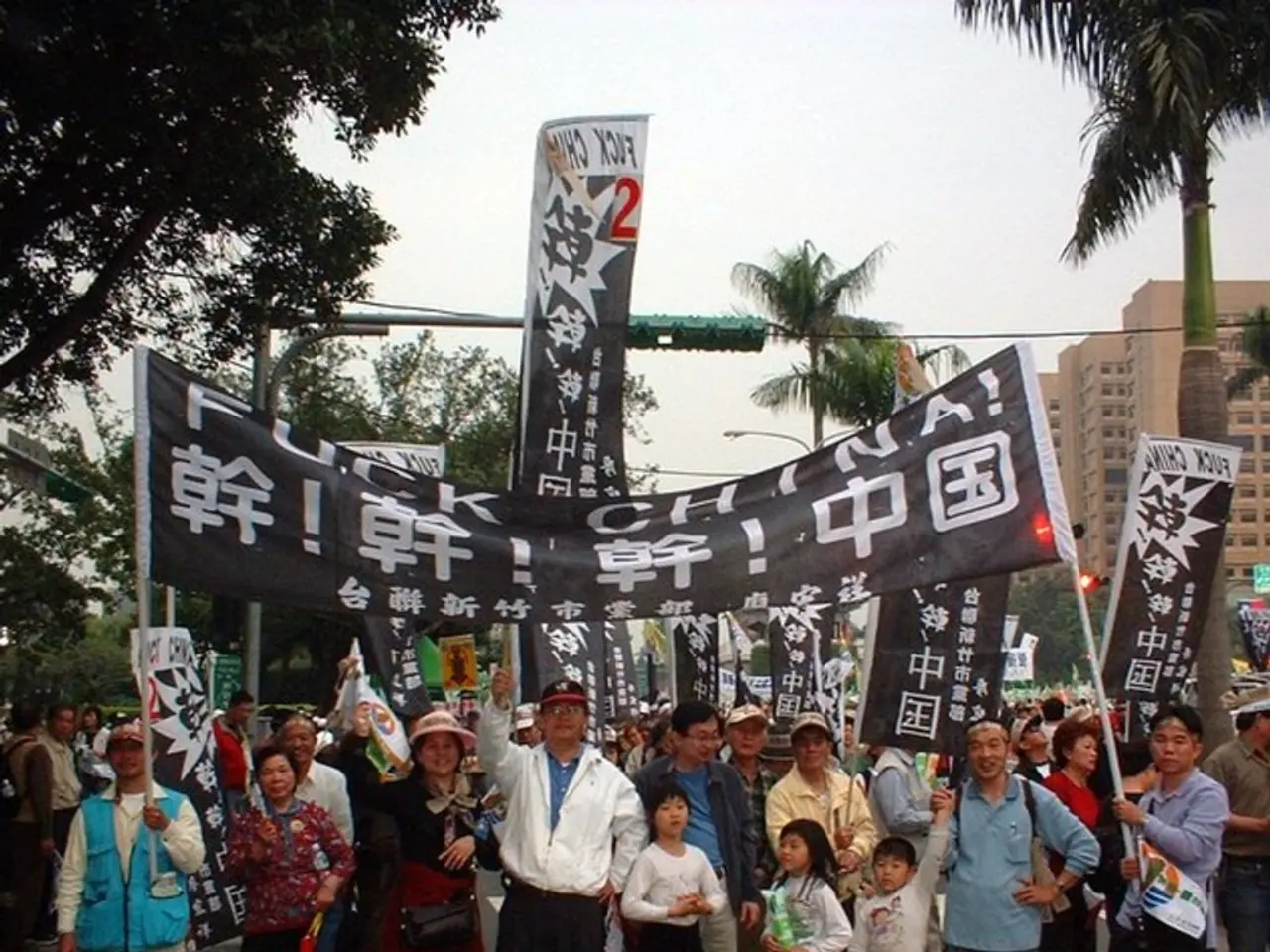Female Rights Activist Susan B. Anthony's Battles for Voting Equality
In June 1873, Susan B. Anthony stood trial for illegally voting in the 1872 Presidential election, an event that significantly advanced the women's suffrage movement. The trial, which Anthony described as "the greatest judicial outrage history has ever recorded," brought national attention to the injustice of women being denied the right to vote.
The trial took place after Anthony's arrest, which occurred two weeks after the November 5 election. Three young men had registered her as a voter on November 1 and accepted her ballot at the polls. According to the transcript, Anthony protested her lack of suffrage by stating that she was a citizen and that she was taxed without representation, a sentiment echoed by other protesters throughout history.
During the hearing, Anthony justified her claim to suffrage by arguing that the 14th Amendment granted her the right to vote. This assertion was based on the "New Departure" strategy, which argued that the 14th Amendment's citizenship rights inherently included the right to vote.
The trial highlighted the legal and social inequities women faced, strengthening the suffrage cause. Anthony's powerful speech titled “Is it a Crime to Vote?” framed suffrage as a fundamental civil right. Although the court ruled against her, the publicity helped galvanize support for women's suffrage and demonstrated the need for a constitutional amendment explicitly granting women the vote.
The National Woman Suffrage Association (NWSA) used this momentum to push for such an amendment, culminating decades later in the passage of the 19th Amendment. Anthony’s trial marked a pivotal moment by shifting the movement’s focus from court battles over existing constitutional interpretations to campaigning for a clear legal guarantee of women’s voting rights.
The documents "U.S vs. Susan B. Anthony, Indictment for Illegal Voting, 01/24/1873" and "U.S. vs. Susan B. Anthony, Exhibit B, a transcript of the hearing" provide further information on the trial and Susan B. Anthony's defense. Her own testimony in her defense centered around her belief that as a citizen, she was entitled to vote, and that her actions were an act of civil disobedience.
Susan B. Anthony's trial was not just a legal battle, but a significant milestone in the history of the women's suffrage movement. Her tireless advocacy for women's rights spanned over fifty years, making her a key figure in the fight for gender equality. The study of the suffrage movement requires an analysis of the development of American culture, its diversity and multicultural context, and the ways people are unified by many values, practices, and traditions.
References:
- The Elizabeth Cady Stanton and Susan B. Anthony Papers Project
- Famous American Trials: The Trial of Susan B. Anthony
- NARA Resources on Women
- Remarks by Susan B. Anthony in the Circuit Court of the United States for the Northern District of New York
- U.S vs. Susan B. Anthony, Indictment for Illegal Voting, 01/24/1873
- U.S. vs. Susan B. Anthony, Exhibit B, a transcript of the hearing
- Susan B. Anthony Criminal Case File, 01/1873 - 07/1873
- Susan B. Anthony, Defendant
- The Major Social, Political, Economic, Cultural, and Religious Developments in New York State and United States History
- The Susan B. Anthony trial, a prominent event in the history of general-news and politics, served as a significant stepping stone in the women's suffrage movement.
- In the aftermath of the trial, the National Woman Suffrage Association (NWSA) used the publicity to push for a constitutional amendment, a key development in the politics and general-news landscape of the time.







